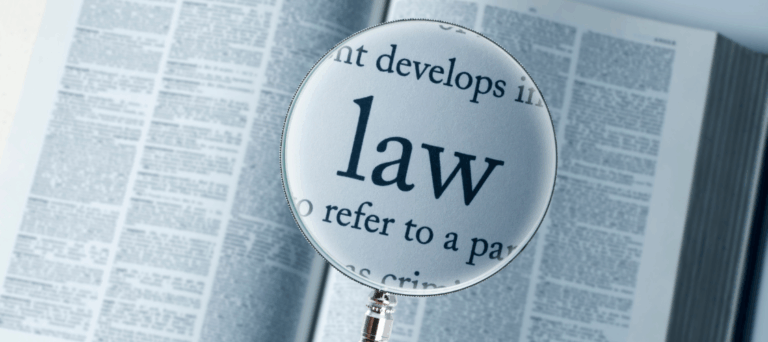Industry Updates
For Mediation Institute Members and other Dispute Resolution Professionals
Recent Posts

Acknowledgement of Country
Find out more about Acknowledgement of Country, Reconciliation and Cultural Safety resources.
Your Path to Becoming an AMDRAS Accredited Mediator: A step-by-step Guide
A step by step guide to becoming an amdras accredited mediator

Navigating Mandatory FDR: Insights from 2024 – 2025 Family Court Case Law for FDRPs.
Recent Australian cases mentioning family dispute resolution and their significance for mediators (January 2024 – November 2025) This summary identifies recent Australian cases

Streamlining Your Accreditation: The AMDRAS Alternative Pathway for FDR Practitioners
Discover the AMDRAS Alternative Pathway for FDR Practitioners—streamlining accreditation and recognising your existing expertise in family mediation.

Join this Mediator Cruise with Mediation Institute and support MBBO
Join us on a Mediator Cruise, fundraiser for Mediators Beyond Borders Oceania with the opportunity to complete your AMDRAS practicum (if eligible) or mediation professional development

Why Give It a Week When We Can Give It the Month?
International Mediation Awareness Week is back this November — and this year, we’re celebrating all month long.
Host a free online or in-person event to share your knowledge, promote understanding, and inspire others to choose mediation.
Catch up with On Demand CPD
FDR vs AMDRAS: Understanding Professional Obligations for Family Dispute Resolution Practitioners.
In this comprehensive webinar, Joanne Law, Director of Mediation Institute, clarifies ...the professional boundaries, obligations, and key differences between FDR practitioners under the Family Law Act and nationally accredited mediators under AMDRAS standards.
📌 What You'll Learn:
✅ Why jurisdictional distinction matters for your practice
✅ Statutory obligations for FDR practitioners vs AMDRAS mediators
✅ Child focus, safety, and suitability assessment requirements
✅ Section 60I certificate authority and responsibilities
✅ Confidentiality and inadmissibility protections
✅ Registration pathways and accreditation requirements
✅ Professional development obligations (24-25 hours every 2 years)
✅ Record-keeping requirements (updated 2025 regulations)
✅ Common complaints and how to avoid them
✅ Decision-making framework for determining FDR vs general mediation
⏱️ Chapters:
0:00 Introduction & Acknowledgment
2:00 Why Jurisdictional Distinction Matters
4:06 Overlap Between FDR and AMDRAS
7:25 What Changes When It's FDR
11:03 Jurisdictional Triage
14:10 AMDRAS vs FDR Systems Comparison
25:49 FDR Obligations Under Family Law Act
29:51 Summary of Key Differences
36:01 Decision Making Framework
37:19 Insights from Complaints
42:00 Closing Remarks
🎓 Presented by:
Joanne Law, Director of Mediation Institute and Manager of the approved complaint handling service for nationally accredited mediators and FDR practitioners. http://www.mediationinstitute.edu.au
📋 Key Updates Covered:
- Family Law (Family Dispute Resolution Practitioners) Regulations 2025
- Updated Section 114B (formerly Section 117) cost provisions
- New record-keeping requirements
- Alternative pathways for AMDRAS accreditation
🔗 Resources Mentioned:
AMDRAS Board: http://www.amdras.au
Australian Institute of Family Studies: https://aifs.gov.au/resources/resource-sheets/mandatory-reporting-child-abuse-and-neglect
Mediation Institute: http://www.mediationinstitue.edu.au for training information. http://www.mimember.au for professional membership information
⚠️ Important for Practitioners:
If you only have core units and rely on AMDRAS accreditation for FDR registration, your FDR status is conditional on maintaining national accreditation. Don't let it lapse!
💬 Questions or Comments?
Share your thoughts below or contact Mediation Institute for more information.
📧 Want the Decision Tree Document?
Email us at office@mediationinstititute.edu.au to request a copy.
#FamilyDisputeResolution #FDR #Mediation #FamilyLaw #AMDRAS
© Mediation Institute
This presentation is for educational purposes. Always consult current legislation and seek professional advice for specific situations.Show More

In this comprehensive webinar, Joanne Law, Director of Mediation Institute, clarifies ...the professional boundaries, obligations, and key differences between FDR practitioners under the Family Law Act and nationally accredited mediators under AMDRAS standards.
📌 What You'll Learn:
✅ Why jurisdictional distinction matters for your practice
✅ Statutory obligations for FDR practitioners vs AMDRAS mediators
✅ Child focus, safety, and suitability assessment requirements
✅ Section 60I certificate authority and responsibilities
✅ Confidentiality and inadmissibility protections
✅ Registration pathways and accreditation requirements
✅ Professional development obligations (24-25 hours every 2 years)
✅ Record-keeping requirements (updated 2025 regulations)
✅ Common complaints and how to avoid them
✅ Decision-making framework for determining FDR vs general mediation
⏱️ Chapters:
0:00 Introduction & Acknowledgment
2:00 Why Jurisdictional Distinction Matters
4:06 Overlap Between FDR and AMDRAS
7:25 What Changes When It's FDR
11:03 Jurisdictional Triage
14:10 AMDRAS vs FDR Systems Comparison
25:49 FDR Obligations Under Family Law Act
29:51 Summary of Key Differences
36:01 Decision Making Framework
37:19 Insights from Complaints
42:00 Closing Remarks
🎓 Presented by:
Joanne Law, Director of Mediation Institute and Manager of the approved complaint handling service for nationally accredited mediators and FDR practitioners. http://www.mediationinstitute.edu.au
📋 Key Updates Covered:
- Family Law (Family Dispute Resolution Practitioners) Regulations 2025
- Updated Section 114B (formerly Section 117) cost provisions
- New record-keeping requirements
- Alternative pathways for AMDRAS accreditation
🔗 Resources Mentioned:
AMDRAS Board: http://www.amdras.au
Australian Institute of Family Studies: https://aifs.gov.au/resources/resource-sheets/mandatory-reporting-child-abuse-and-neglect
Mediation Institute: http://www.mediationinstitue.edu.au for training information. http://www.mimember.au for professional membership information
⚠️ Important for Practitioners:
If you only have core units and rely on AMDRAS accreditation for FDR registration, your FDR status is conditional on maintaining national accreditation. Don't let it lapse!
💬 Questions or Comments?
Share your thoughts below or contact Mediation Institute for more information.
📧 Want the Decision Tree Document?
Email us at office@mediationinstititute.edu.au to request a copy.
#FamilyDisputeResolution #FDR #Mediation #FamilyLaw #AMDRAS
© Mediation Institute
This presentation is for educational purposes. Always consult current legislation and seek professional advice for specific situations.Show More

This short from Mediation Institute summarises the importance of summaries in the Mediators Skill Set.
A summary is ...a concise presentation of the key points, insights or conclusions drawn from a larger discussion.
In mediation it is not a simple retelling and it is never without purpose.
Mediators listen for the hidden gems in the conversation. The competing priorities. The Underlying Interests. The Values Conflicts. The Key Facts. The Hidden Needs. The Emotional Signals. The Potential Options. When Agreement is Possible.
Mediator Summaries then highlight these hidden gems which often get obscured or lost in the flow of conversation.
The role of the mediator is to provide clarity. We shine a light with our summaries and help the parties see what matters most to them. Our summaries keep discussions productive.
Next time you mediate listen carefully and bring the hidden gems into focus with concise summaries.
What insights do you have about summaries?
Share an example of a time when a summary you did brought a hidden gem to the surface and changed the dynamic of a mediation process.Show More

Whether you're new to mediation or enhancing your skills, this course sets ...you on the path to becoming a nationally accredited mediator in Australia.
Over a comprehensive six-week learning pathway, you will explore the foundations of mediation, ethical practices, and diverse dispute resolution contexts. The course includes interactive quizzes, role plays, and self-directed learning with support from a dedicated training team. Stay engaged, complete your activities, and achieve your Certificate of Training!
00:00 Welcome & Introduction
00:02 Course Overview & Your Journey
00:35 Mediation Focus & Course Content
00:59 Interactive Learning & Role Plays
01:16 Six Week Learning Pathway
01:58 Course Flexibility & Time Commitment
02:54 Engagement Requirements & Certificate Eligibility
03:47 Support Team & Course Navigation
05:49 Final Encouragement & Next Steps
🎯 WHAT YOU'LL LEARN
• Foundations of facilitative mediation
• Non-determinative mediation models
• Ethical and effective mediation practices
• Skills for diverse dispute resolution contexts
⏱️ COURSE STRUCTURE
• 6-week pathway (up to 6 months to complete)
• 45+ hours live trainer interaction
• 15+ hours self-directed learning
• 2 hour pre-mediation role play practice session
• 9+ realistic mediation role play simulations
• Interactive quizzes and activities
✅ REQUIREMENTS
• Complete all quizzes and learning activities
• Participate in mandatory role plays
• Attend live webinars or review recordings with additional role play participation
• Steady engagement and progress
🎓 CERTIFICATION
Upon completion, receive your Certificate of Training—qualifying you for the Certificate of Assessment, the final educational step toward AMDRAS accreditation.
Considering this training? Visit https://www.mediationinstitute.edu.au/amdras-certificate-of-training/ for more information.
MediationTraining #AMDRAS #DisputeResolution #MediatorCertification #ProfessionalDevelopment #ConflictResolution #AustralianMediation #OnlineLearningShow More

What You'll Learn:
🔹 Definitions & Core Concepts - Understanding the fundamental differences between FDR and elder mediation
🔹Participants - Who's involved in each process and why it matters
🔹 Timing - When each type of mediation is appropriate (pre-crisis vs. post-crisis)
🔹 Guiding Principles - Rights of children vs. rights of older persons
🔹 Ethical Challenges - Navigating capacity, power imbalances, and mediator neutrality
🔹 Implicit Biases - Recognizing ageism, caring roles, and cultural expectations
🔹 Legal Framework - Understanding the legislation governing each practice
Key Takeaways:
• FDR focuses on the best interests of the child, while elder mediation centres on the wishes and preferences of the older person
• Elder mediation can be preventative and used throughout the aging journey, not just in crisis
• The concept of "dignity of risk" - respecting an older person's right to make their own choices, even when they involve risk
• Capacity is assumed in elder mediation and can be enhanced through creative mediation approaches
• Elder mediation is collaborative, often involving multiple parties and professional supports
About the Speaker: Sian Dyce is a family dispute resolution practitioner and elder mediator with extensive experience in both fields. She is passionate about supporting families through important conversations around separation and aging. https://www.familytalks.com.au/our-services
Timestamps:
0:00 - Introduction & Acknowledgement of Country
9:00 - Definitions: FDR vs. Elder Mediation
15:00 - Participants in Each Process
21:00 - Timing: Pre-Crisis vs. Post-Crisis
26:00 - Guiding Principles & Rights
37:00 - Voice at the Centre
57:00 - Ethical Issues & Power Balance
87:00 - Capacity in Elder Mediation 106:00 - Implicit Biases
114:00 - Legal Status & Framework
Resources Mentioned:
• Elder Mediation International Network (EMIN)
• Elder Mediation Australasian Network (EMAN)
• New Aged Care Act Statement of Rights
• Professor Dale Bagshaw's Elder Mediation Training
• Mediation Institute hosted Mi Mediators Network
This presentation is ideal for mediators, family dispute resolution practitioners, legal professionals, and anyone interested in understanding the nuances of elder mediation as a specialized practice area.
________________________________________
#ElderMediation #FamilyDisputeResolution #Mediation #AgedCare #FamilyLaw #ConflictResolution #ElderCare #MediationInstituteShow More

00:00 Introduction and Overview
00:11 Mediator's Self-Assessment
02:39 Mediators Opening Statements
07:35 Manny's Opening Statement
15:33 Tibby's Opening Statement
21:39 Forming the Agenda
27:17 Exploration and Option Generation (abbreviated)
38:52 Private Session
47:54 2nd Private Session
56:18 Negotiation
1:07:18 Documenting Agreement
1:23:35 CloseShow More

In this insightful webinar, Sian Dyce, a family and elder mediator, discusses the essential role of elder mediation in families, especially ...as they navigate the complexities of aging. Sian highlights the benefits of elder mediation, including its ability to facilitate respectful and collaborative conversations around aging, future needs, and family wishes. The session delves into what elder mediation is, how it works, and its goals, which include maximising the quality of life and relationships while promoting wellness and preventing conflicts.
Sian shares personal anecdotes and case studies to illustrate the importance of early and continuous conversations within families.
The presentation also covers the rights of older individuals, the concept of 'dignity of risk,' and the practical steps involved in the elder mediation process.
This session is part of the International Mediation Awareness Week and is hosted by the Mediation Institute.
00:00 Introduction and Welcome
00:47 Acknowledging Traditional Custodians
01:39 What is Elder Mediation?
04:02 Goals and Benefits of Elder Mediation
05:51 The Concept of Wellness in Elder Mediation
11:46 Case Study: The Dignity of Risk
13:41 The Elder Mediation Process
15:29 When to Use Elder Mediation
19:23 Challenges and Hidden Expectations in Families
24:01 The Secret Life of Carers
27:26 The Role of Elder Mediators
29:38 The Importance of Courageous Conversations
29:59 Elder Mediation: Reducing Stress and Conflict
30:39 Supporting Informal Carers and Delaying Aged Care
31:34 Encouraging Family Conversations
31:40 Personal Story: The Need for Early Conversations
32:19 Resources for Elder Mediation
33:28 Training and Accreditation in Elder Mediation
34:15 Q&A: Addressing Elder Mediation Concerns
36:10 The Role of Mediators in Elder Care
43:20 Government Funding and Support for Mediation
47:07 End-of-Life and Advanced Care Planning
49:18 Conclusion and Future PresentationsShow More

Finally, we emphasise the power of language in creating a supportive environment, encouraging empathy over judgment.
00:00 Introduction to a trauma informed Perspective on Domestic Violence
00:25 Understanding Inconsistent Stories
01:15 The Trauma-Informed Perspective
02:31 Recognising Trauma Responses
03:03 Practical Steps for Support
03:48 The Power of Language
04:28 From Judgment to Empathy
04:54 A Call to Action for EveryoneShow More

Drawing from his extensive background ...in law, psychotherapy, and leadership, Dan discusses the historical context of disputes, the importance of understanding existential concerns, and the impact of effective communication in mediation.
Through thought-provoking examples and insights, Dan highlights the role of mediators in helping parties find meaning and resolve conflicts. This also includes a reflection on the mediator's journey in searching for meaning within themselves and their professional lives.
Don't forget to check the accompanying paper linked below for a deeper exploration of these themes. https://www.dsmediation.com.au/uncategorized/mediation-and-a-search-for-meaning/
00:00 Introduction and Speaker Background
00:51 Acknowledgment of Country and Personal History
02:25 Historical Context and Meaning
04:32 Existential Concerns and Mediation
06:36 Communication Challenges in Mediation
10:40 Active Listening and Understanding
12:53 Role of Lawyers in Mediation
17:49 Mediator's Role and Self-Reflection
25:57 Voluntary Mediation and Court Mandates
27:56 Search for Meaning in Mediation
34:59 The Importance of Self-Discovery in Mediation
37:12 Personal Journey to Mediation
38:13 Diverse Career Paths and Their Impact
40:59 The Role of Meaning in Professional Life
43:34 Challenges and Insights in Mediation
46:43 Cultural Perspectives on Mediation
52:36 Final Thoughts and Contact InformationShow More

Established in 2015, Interact Support helps individuals who fall through gaps in the family law system.
Joanne discusses the differences between separation and divorce, the emotional and legal aspects of separation, the cycle of grief, and the significance of family dispute resolution. She highlights support structures available for those experiencing family violence and the necessity of addressing children’s welfare post-separation. Legal information regarding aspects like protection orders, property settlements, and the best interest of the child are also covered, making this an essential first information resource for those navigating family law issues.
00:00 Introduction to Interact Support
00:26 Understanding Separation and Divorce
03:42 The Emotional Rollercoaster of Separation
04:34 Family Violence and Safety Planning
08:32 Navigating the Legal System
10:49 Support Services Available
13:58 Family Dispute Resolution Explained
25:47 Creating Effective Parenting Plans
34:33 Property Settlements and Legal Advice
42:34 Final Thoughts and Contact InformationShow More

This informative session ...outlines the benefits of mediation compared to traditional legal processes, with insights from Matt Lockwood, a seasoned mediator.
Real-life case studies demonstrate the challenges and outcomes of taking disputes to court versus mediation. You'll discover how mediation can be a faster, more affordable, and less hostile way to resolve conflicts while maintaining community harmony. Learn about the principles, process, and accessibility of mediation services, and how they can help you handle neighbour disputes effectively.
00:00 Introduction and Presenters
01:10 Understanding Mediation and Its Benefits
02:46 Legal Perspectives on Conflict Resolution
05:05 Case Studies: Real-Life Neighbor Disputes
11:28 Challenges and Solutions in Mediation
23:23 The Mediation Process and Its Boundaries
28:03 The Importance of Safety in Mediation
28:09 Effectiveness and Success Rates of Mediation
28:37 Choosing the Right Mediator
29:13 ICDRS Mediation Services Overview
30:50 Community Mediation and Legal Framework
33:57 The Role of Mediators and Ethical Considerations
36:19 Practicalities and Challenges in Mediation
42:29 Final Thoughts and Joining ICDRSShow More

In this International Mediation Awareness Week presentation, Sonal Kharbanda from India discusses key challenges in family mediation, with a focus on parental ...alienation and child custody.
Sonal emphasises the importance of maintaining neutrality as a mediator and explores the impacts of parental separation on children. The session delves into recognising signs of domestic violence and parental alienation, offering insights on how mediators can help families navigate these sensitive issues.
The presentation also addresses the role of mediators in empowering clients without compromising professional ethics, and provides practical advice for new mediators.
00:00 Welcome and Introduction
00:29 Understanding Family Mediation
01:00 Challenges in Family Mediation
06:44 Parental Alienation Explained
11:05 Impact of Domestic Violence
15:09 Role of Mediators in Conflict Resolution
24:29 Q&A and Practical AdviceShow More

Key topics include the importance of ...the pre-intake stage, ethical frameworks like the AMDRAS Ethical Framework, and the new standards in mediation. We also cover essential steps such as following up on inquiries, conducting conflict checks, gathering information, and ensuring informed consent and competence. Learn about maintaining neutrality, handling confidentiality, conducting suitability assessments, and upholding professional conduct.
Practical tips on managing client information, using standardised processes, and utilising tools like client relationship management software and AI for document review are discussed. This webinar is a must-watch for mediators aiming to enhance their practice management skills and adherence to ethical standards.
00:00 Introduction to Mediation Practice Management
00:20 Acknowledging Traditional Owners and Ethical Framework
00:35 Importance of Pre-Intake Stage
01:00 AMDRAS Ethical Framework and Standards
01:51 Process Overview: From Referral to Pre-Mediation
04:32 Handling Initial Contact and Confidentiality
06:59 Screening and Conflict Check
08:43 Information Gathering and Clarification
10:10 Assessing Suitability for Mediation
12:59 Engaging Each Party Separately
20:43 Ethical Dilemmas and Practical Tools
24:47 Reflective Practice and Continuous Improvement
27:11 Conclusion and ResourcesShow More
